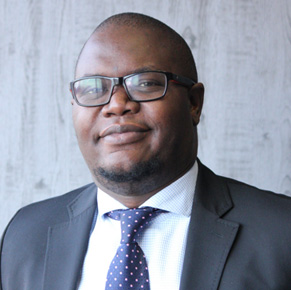Most parents want to give their children the best start in life when it comes to financial support. But the earlier you start the better. Not only can making regular investments for your children generate a surprisingly significant amount over time, it can also help you reduce a potential future tax liability. There are different ways to save for children, from simple savings accounts to complex investment products. In this article, we look at tax-free savings accounts as a simple and transparent investment option.
Try something different
What receives less attention is the fact that you can contribute up to R 33 000 a year (with a lifetime limit of R500 000) into a tax-free account without paying any tax. That is 0% tax on interest, dividends or capital gains. Your money also grows faster compared to a regular investment because you do not pay tax on the investment return. You do not have to contribute the whole R33 000 at once, you can contribute through a regular monthly contribution or make small lump sum contributions throughout the year.
You can access your money at any time. There are no exit penalties and the only thing to remember is that once you have contributed the full R33 000, if you withdraw, you cannot replace it. This is to encourage you to stay the course and keep your savings for the long-term. While it may seem strange putting money into an investment that your child will likely only access later in life, it could be a move that sets them up for a considerably more secure long-term future than many of us face today.
You will accumulate a significant amount of money tax-free
If you assume a monthly contribution of R2 750 (increasing at 6% yearly) and an average compound annual growth rate of 13% (long-term returns on South African shares), within 12 years, your child would have accumulated an impressive R1 170 465 in their account. But the most important way to measure your wealth is in terms of returns after inflation. This is referred to as a real return, which is your return after inflation, not the return before the effects of inflation are measured. This can also be thought of as the “net return”. Keeping this in mind will help you manage the purchasing power of your savings. If you add the South African average annual inflation rate of 6% on the above assumptions, it will take you 18 years to make R1 089 456 after deducting inflation. That is still a significant some of money, and an easier way to reach that difficult to get to R1 million mark.
Tax-free savings accounts are long-term savings accounts
If you open the account when your child is young, there should be more than enough time to ride out market fluctuations. You can afford to take a reasonable amount of risk, if you invest for 10 years or more. The universe of unit trust funds available is broad and there is enough supply to satisfy all your investment needs. Unit trusts invest in shares, property, bonds and money market instruments. We usually advice that you consider shares as an underlying investment, if you are investing for any period more than three years. Over very long periods, buying shares has proven to be a winning strategy.
You have until 28 February 2018 to use your R33 000 tax-free allowance. If you feel like you are missing out because you do not have any new money to invest, do you have any investments in other accounts that you could sell? You could then move the proceeds into a tax-free savings account. This is a common way to make the most of your tax-free allowance although this may result in a capital gains tax event. Get in touch with our wealth managers if you would like more information about how we can help you put a plan together to achieve your investment goals.

Owen Nkomo
Chief Executive Officer
Owen is the founder of Inkunzi Wealth Group and has over 14 years of industry experience. Prior to founding Inkunzi Wealth Group he held various leadership roles at Deutsche Bank, JPMorgan Chase and Citi. He has an Honours degree in Investment Management.


